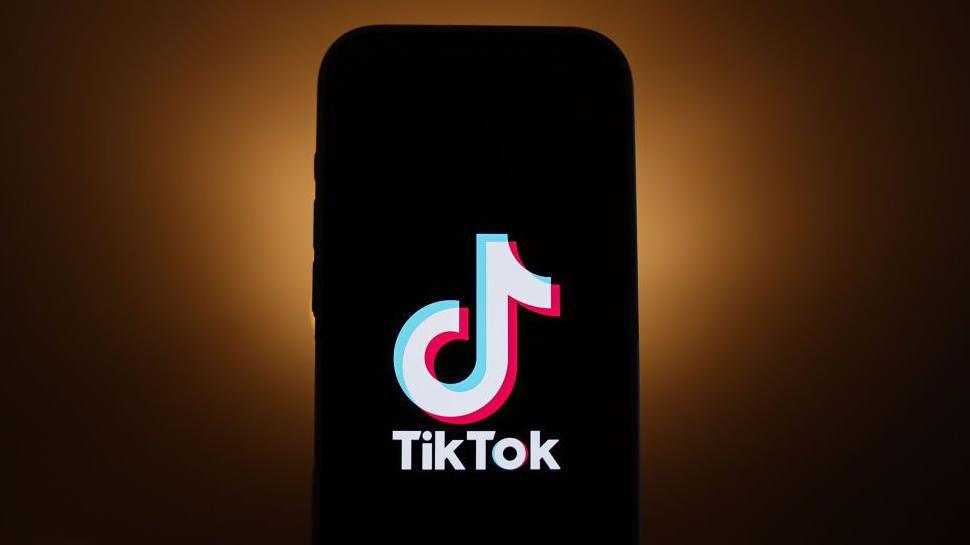EU investigates TikTok over alleged Russian meddling in Romanian vote

- Published
The European Union's executive has opened a formal investigation into TikTok because of "serious indications" of foreign interference in the recent Romanian presidential election using the video-sharing platform.
The second-round vote was cancelled earlier this month after declassified intelligence documents revealed 25,000 TikTok accounts were suddenly activated weeks before polls opened in the first round.
The accounts backed the independent candidate Calin Georgescu, a largely unknown far-right campaigner who described Russia's Vladimir Putin as a "patriot and a leader", although he denied being a fan.
European Commission President Ursula von der Leyen said democracies had to be protected from foreign meddling.
EU regulators will assess if TikTok's advertising policies and the systems it uses to recommend content to users are in breach of the Digital Services Act (DSA), which is aimed at preventing the spread of disinformation and halting illegal activities online.
"Whenever we suspect such interference, especially during elections, we must act swiftly and firmly," von der Leyen said in a statement, external.
"It should be crystal clear that in the EU, all online platforms including TikTok must be held accountable."
Georgescu's election campaign had been focused primarily on TikTok and, although Moscow has denied interference, Romanian intelligence said Russia had identified the Nato member state as an enemy state and a priority target.
TikToks promoting the candidate were not marked as election content, which is illegal in Romania.
One account paid $381,000 (£300,000) on posts for Georgescu, who denied spending any money himself on the platform.
TikTok has vehemently denied the allegations, insisting "it is categorically false to claim [Georgescu's] account was treated differently to any other candidate".
Although the platform allows election content to be posted and shared organically, paid political advertising is banned.
After the run-off vote was cancelled, TikTok said that "when Romanian authorities contacted us to flag a number of videos that lacked identifiers... we took action on those videos within 24 hours".
Part of the EU investigation will look at the risks associated with "automated exploitation" of TikTok's algorithm, which provides tailored content on a user's "For You" page according to their interests and how they interact with the app.
It will also assess TikTok's policies on political advertisements.
On 5 December, the EU ordered TikTok to preserve internal documents about how it recommended content to users and any methods it had to mitigate "intentional manipulation" of its platform.
This encompasses content relating to any national elections in the EU between 24 November 2024 and 31 March 2025, including Romania, Ireland and Croatia.
The EU said it would carry out the investigation "as a matter of priority".
It runs alongside a separate investigation into TikTok's possible breach of the DSA regarding harmful content and protecting minors.
After the first round of the Romanian presidential vote, Romanian intelligence said that Georgescu's sudden jump in popularity was due to a "highly organised" and "guerrilla" social media campaign, from accounts sending identical messages.
Before the run-off round was cancelled, he was running neck and neck with reformist candidate Elena Lasconi.
Georgescu had campaigned to end political and military aid to Ukraine.
He is a conspiracy theorist who does not believe in the moon landings or the Covid-19 pandemic.